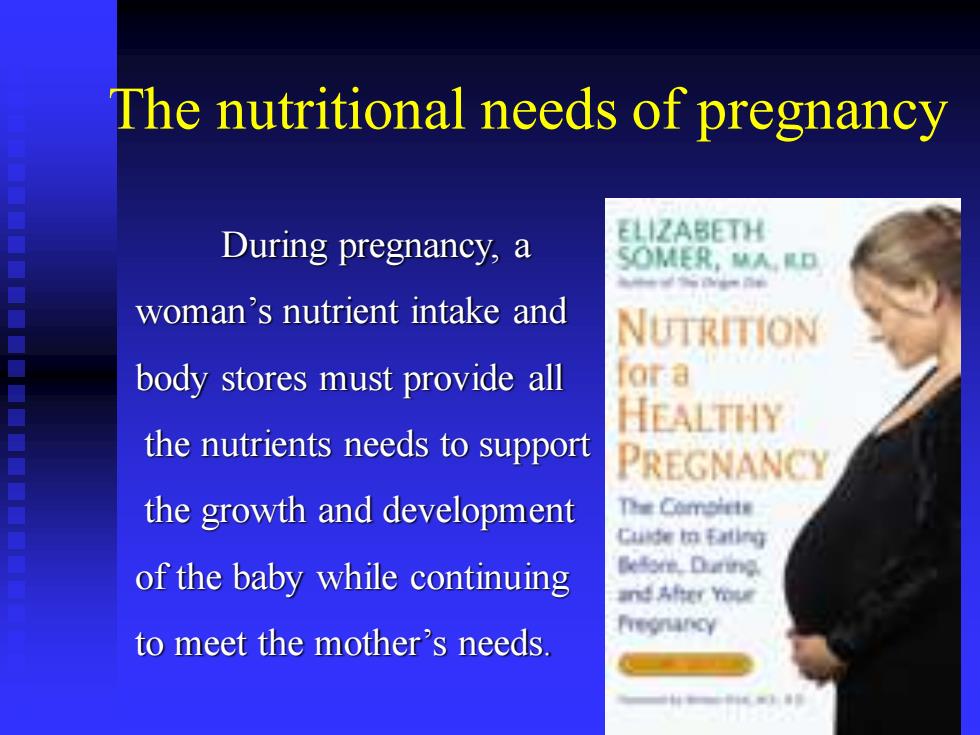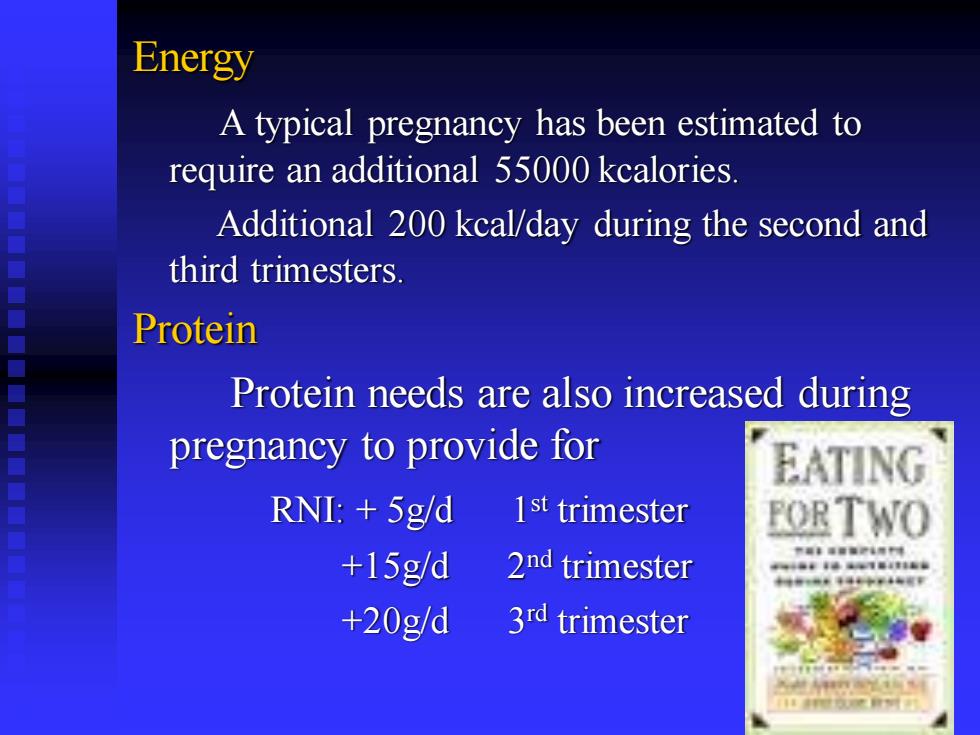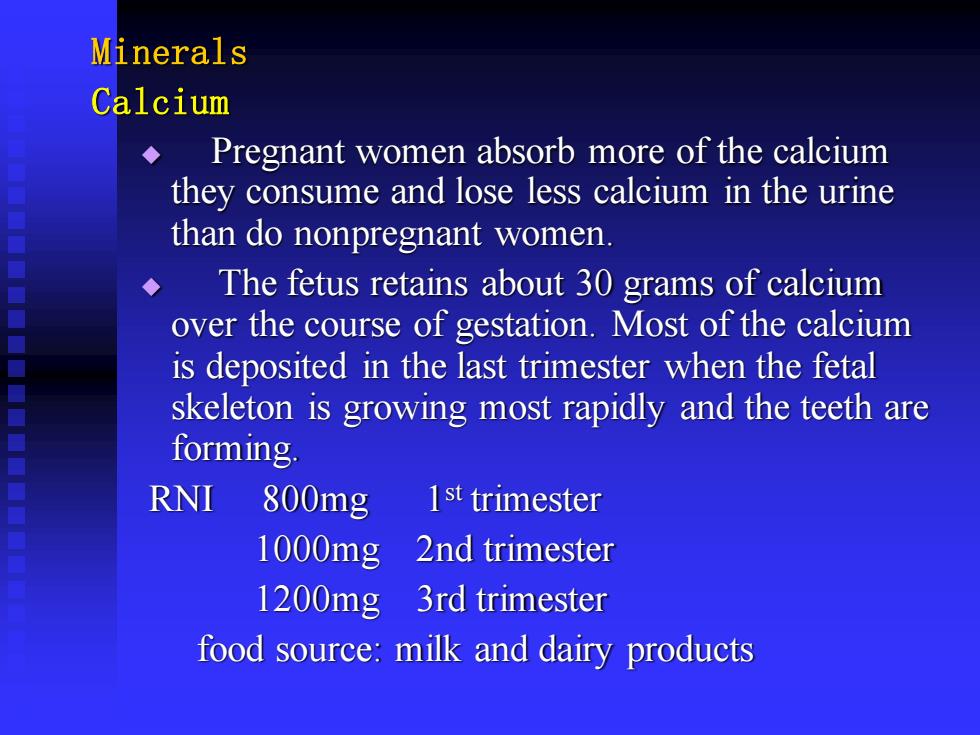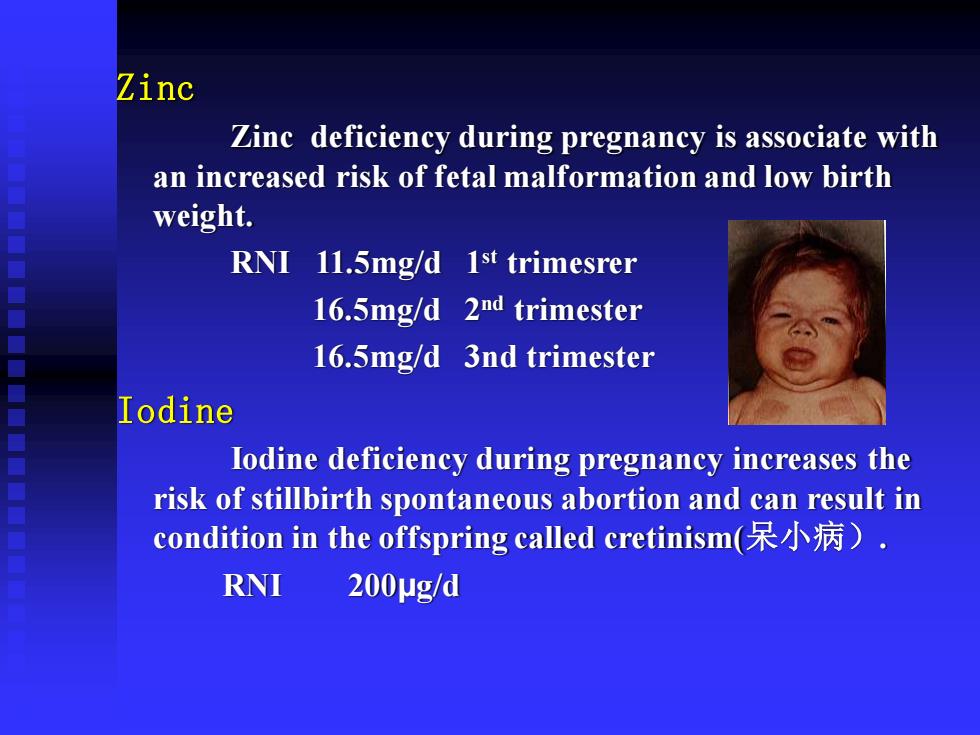
The nutritional needs of pregnancy During pregnancy, a woman’s nutrient intake and body stores must provide all the nutrients needs to support the growth and development of the baby while continuing to meet the mother’s needs
The nutritional needs of pregnancy During pregnancy, a woman’s nutrient intake and body stores must provide all the nutrients needs to support the growth and development of the baby while continuing to meet the mother’s needs

Energy A typical pregnancy has been estimated to require an additional 55000 kcalories. Additional 200 kcal/day during the second and third trimesters. Protein Protein needs are also increased during pregnancy to provide for RNI: + 5g/d 1st trimester +15g/d 2nd trimester +20g/d 3rd trimester
Energy A typical pregnancy has been estimated to require an additional 55000 kcalories. Additional 200 kcal/day during the second and third trimesters. Protein Protein needs are also increased during pregnancy to provide for RNI: + 5g/d 1st trimester +15g/d 2nd trimester +20g/d 3rd trimester

Minerals Calcium ◆ Pregnant women absorb more of the calcium they consume and lose less calcium in the urine than do nonpregnant women. ◆ The fetus retains about 30 grams of calcium over the course of gestation. Most of the calcium is deposited in the last trimester when the fetal skeleton is growing most rapidly and the teeth are forming. RNI 800mg 1st trimester 1000mg 2nd trimester 1200mg 3rd trimester food source: milk and dairy products
Minerals Calcium ◆ Pregnant women absorb more of the calcium they consume and lose less calcium in the urine than do nonpregnant women. ◆ The fetus retains about 30 grams of calcium over the course of gestation. Most of the calcium is deposited in the last trimester when the fetal skeleton is growing most rapidly and the teeth are forming. RNI 800mg 1st trimester 1000mg 2nd trimester 1200mg 3rd trimester food source: milk and dairy products

Iron Iron deficiency anemia low birth weight preterm delivery Babies born prematurely may not have had time to accumulate sufficient iron, but babies born at term usually have adequate iron even if the mother is deficient. RNI 15mg 1st trimester 25mg 2nd trimester 35mg 3rd trimester food source: red meats, leafy green vegetables, fortified cereals iron supplement
Iron Iron deficiency anemia low birth weight preterm delivery Babies born prematurely may not have had time to accumulate sufficient iron, but babies born at term usually have adequate iron even if the mother is deficient. RNI 15mg 1st trimester 25mg 2nd trimester 35mg 3rd trimester food source: red meats, leafy green vegetables, fortified cereals iron supplement

Zinc Zinc deficiency during pregnancy is associate with an increased risk of fetal malformation and low birth weight. RNI 11.5mg/d 1st trimesrer 16.5mg/d 2nd trimester 16.5mg/d 3nd trimester Iodine Iodine deficiency during pregnancy increases the risk of stillbirth spontaneous abortion and can result in condition in the offspring called cretinism(呆小病). RNI 200μg/d
Zinc Zinc deficiency during pregnancy is associate with an increased risk of fetal malformation and low birth weight. RNI 11.5mg/d 1st trimesrer 16.5mg/d 2nd trimester 16.5mg/d 3nd trimester Iodine Iodine deficiency during pregnancy increases the risk of stillbirth spontaneous abortion and can result in condition in the offspring called cretinism(呆小病). RNI 200μg/d